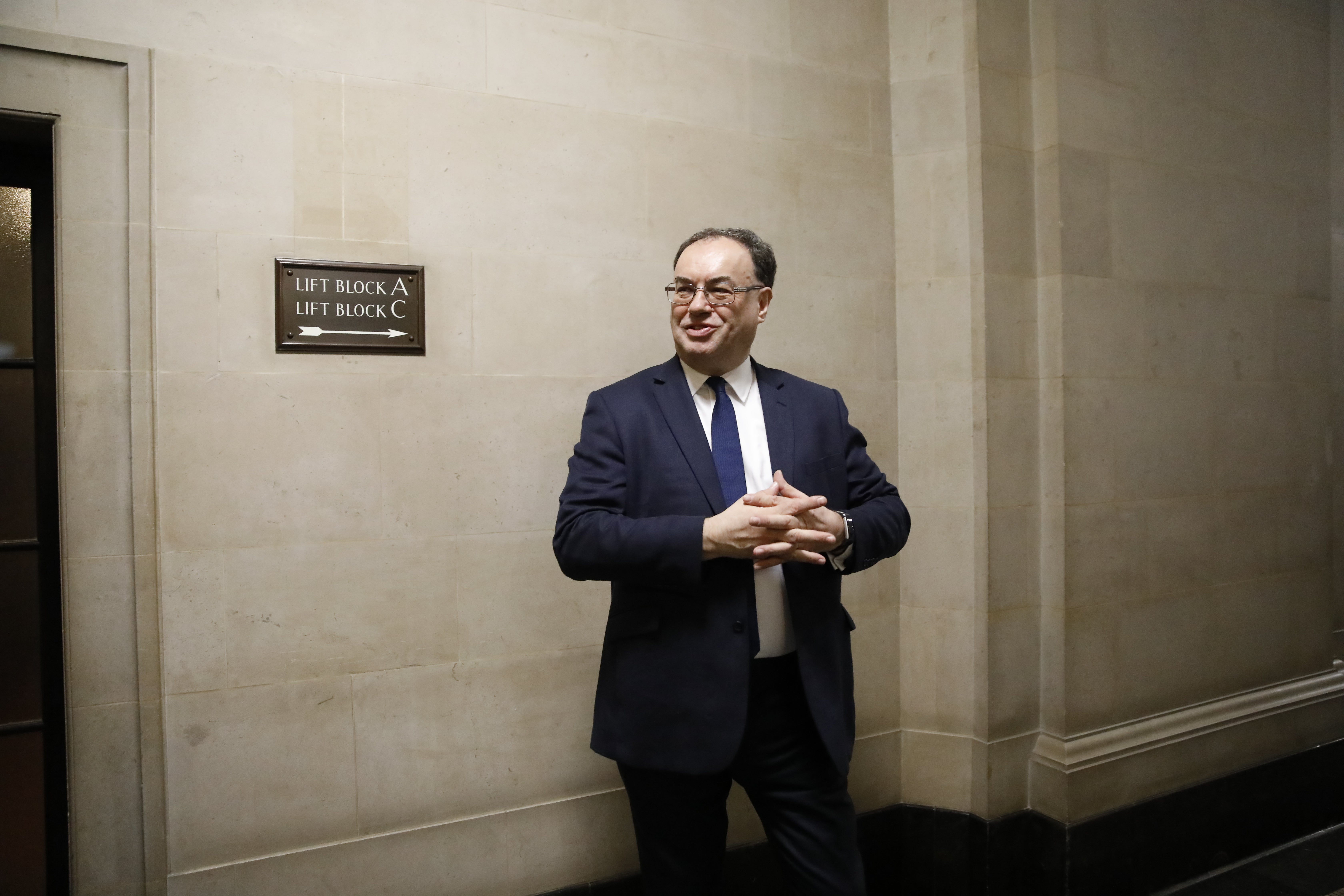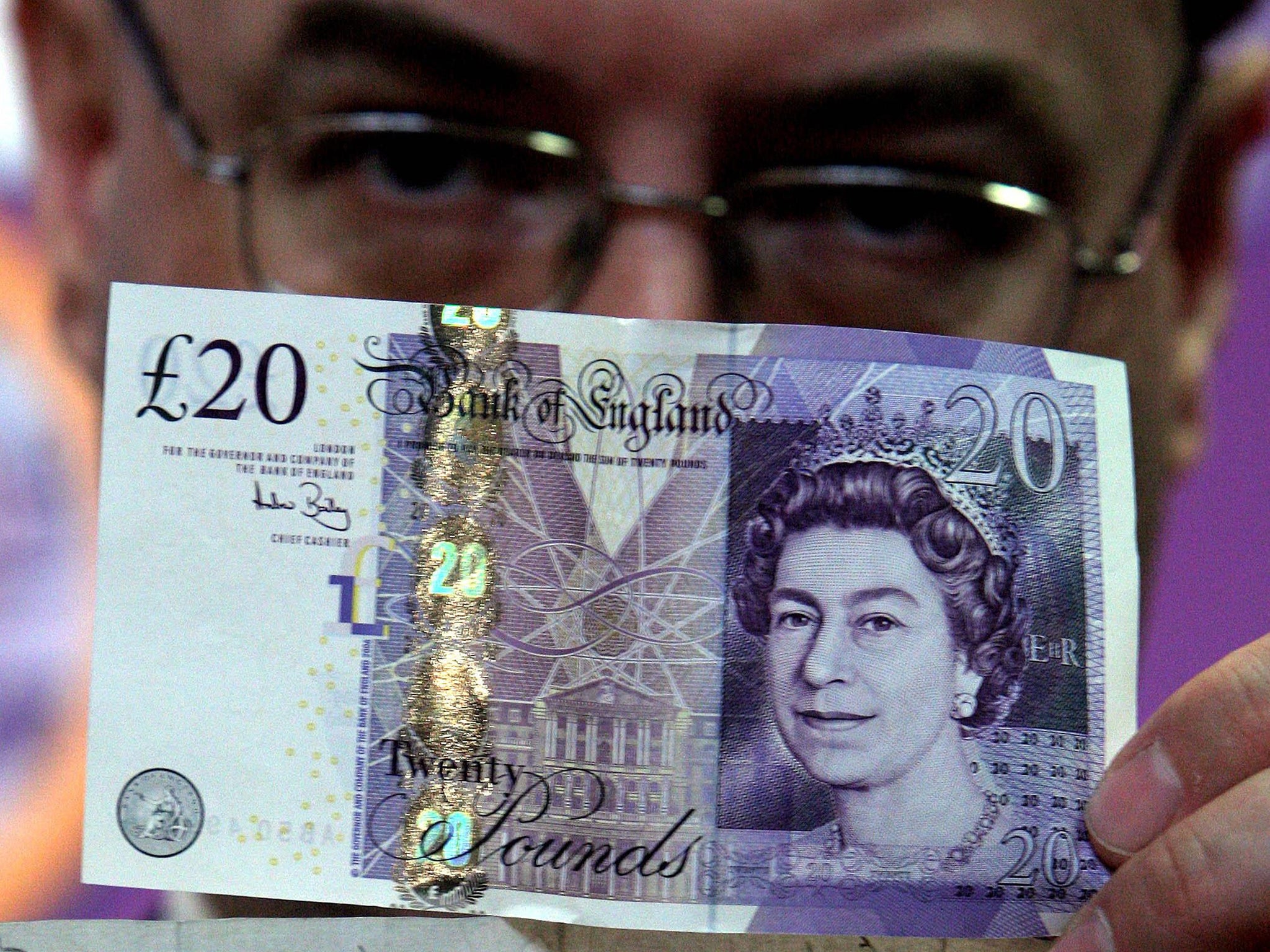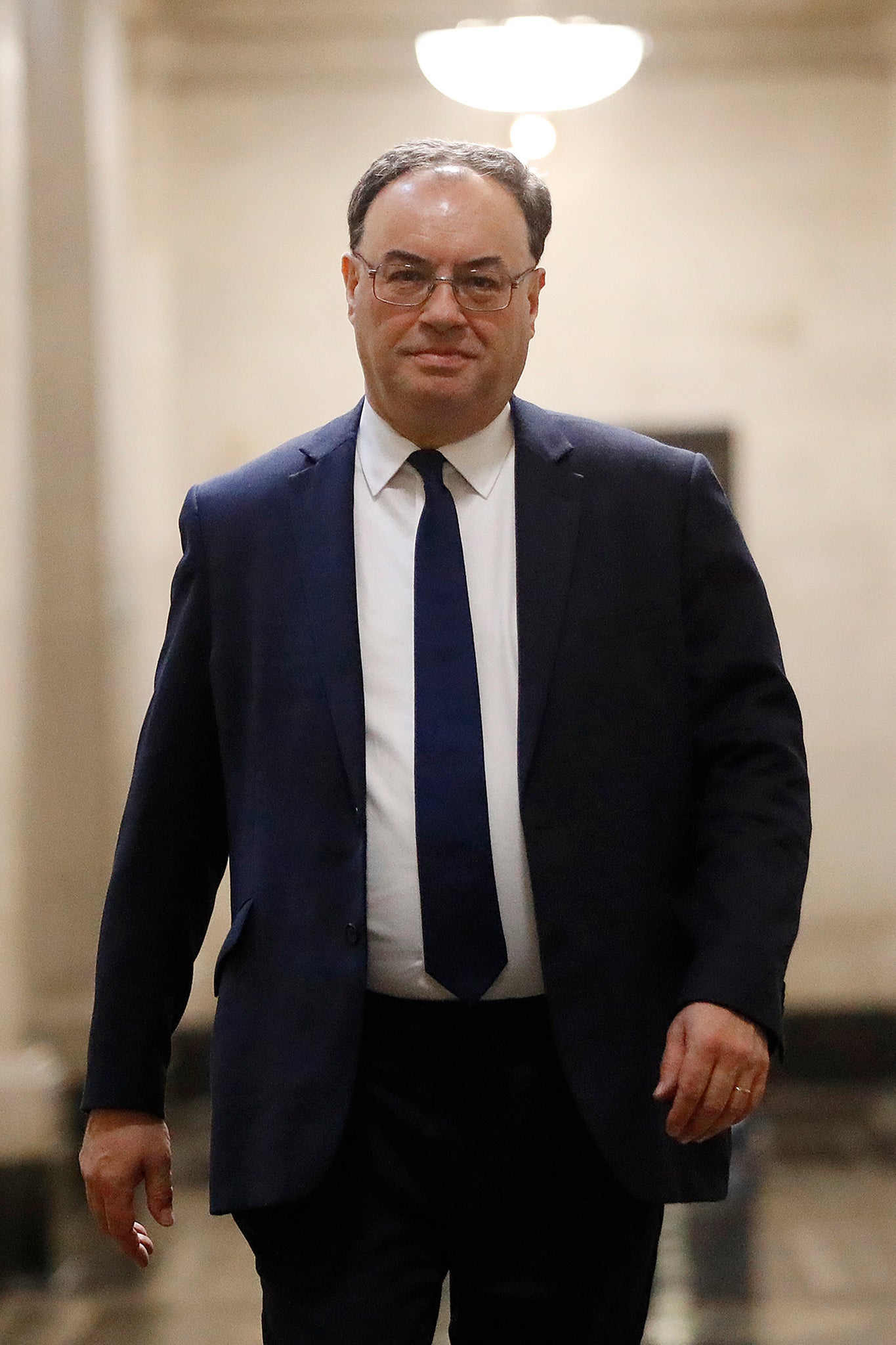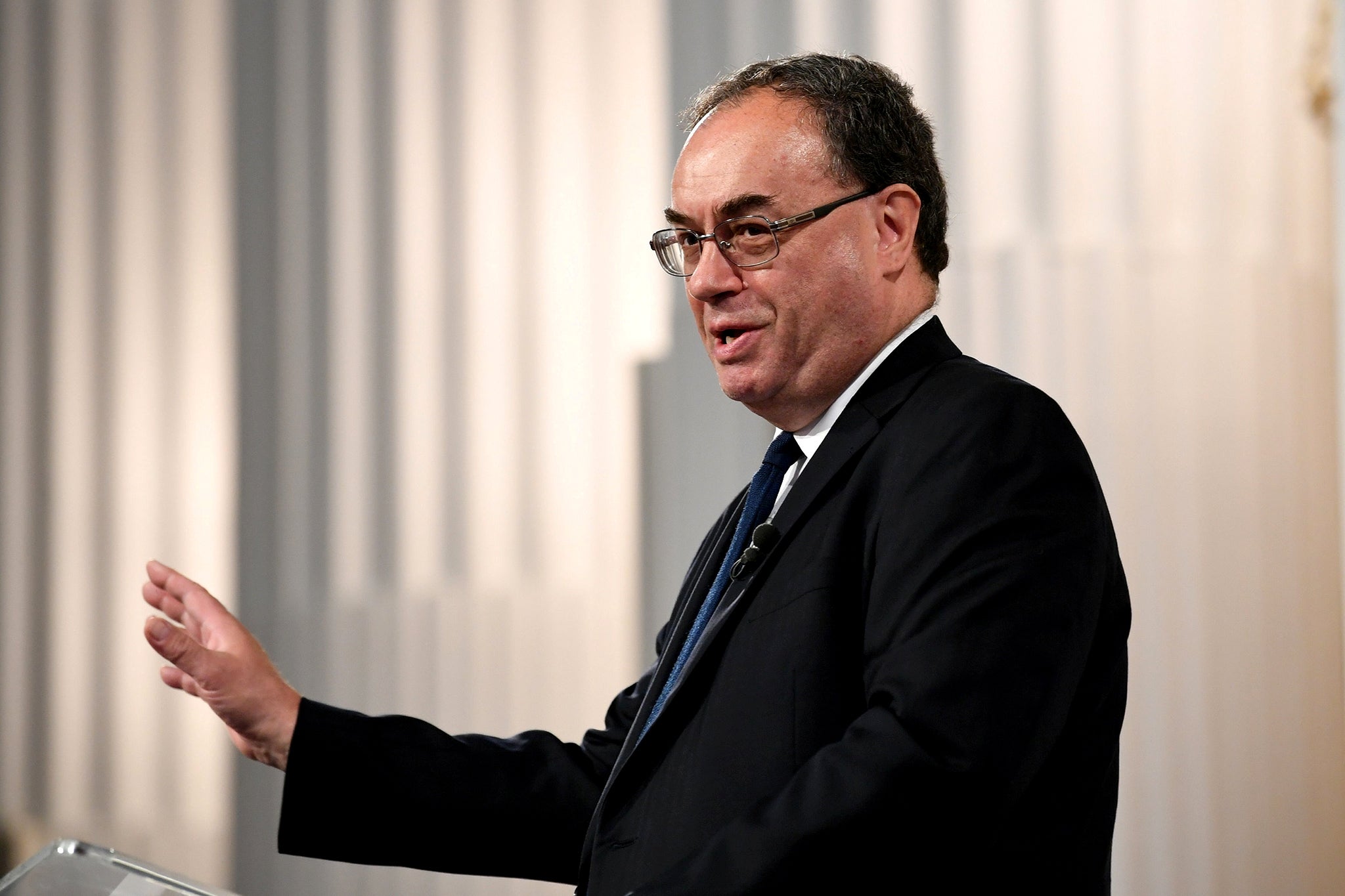Andrew Bailey: Will Bank of England boss stay on the right side of Boris Johnson?
Like the governor of the Bank of England, Sean O’Grady is an old boy of Wyggeston Grammar, where Bailey was his formidable prefect, wielding his authority over the lower forms. Now he is tasked with doing the same over the nation’s finances


The world of central banking harbours some surprisingly colourful colloquialisms. “Taking away the punch bowl”; “helicopter money”; “Black swan events”; and, the one lately levelled at the governor of the Bank of England, Andrew Bailey last week, “unreliable boyfriend”. A less apt description of the no-doubt uxorious Bailey, 62, could scarcely be imagined, but it referred to his uncertain intentions for interest rates rather than his wife, the distinguished American academic Cheryl Schonhardt-Bailey.
You see, the markets thought that Bailey and his colleagues on the Bank’s monetary policy committee would raise interest rates from their all-time low of 0.1 per cent this week. Just a little token would have been sufficient, 0.25 per cent say, just to show willing, and keep faith. They – players in the markets – assumed there’d be such a move by various hints Bailey had dropped in the preceding weeks, the kind of Delphic formulations where subclauses and contingent cautions are parsed and parsed again by journalists and analysts. Maybe he led them on, maybe they took things the wrong way, but he seemed to have disappointed them a little. He had been unreliable.
Bailey’s disarming excuse was that he and his colleagues really didn’t know what was going on, which probably inspired more confidence than you might think. Or not. The furlough scheme is ending, and they cannot say what impact it will have on labour shortages or wages or demand across the economy. As the governor pointed out, pushing rates higher won’t deliver more gas. It’s too early to act yet, it seems, even though inflation is headed towards 5 per cent, and Bailey has been saying much the same thing about pushing rates higher to choke off a nascent inflationary spiral since around March – “yes, but not yet”.
You get the impression that this most professional and unpartisan of central bankers has more of a political edge to his thinking than he lets on. Obviously he is conscientious, hard-working, bright, steady, a central bank professional with 35 years’ experience behind him, and he takes price inflation as seriously as the next central banker (unless the next central banker is his Venezuelan counterpart), but he most surely will be conscious that he has in his hands the tools with which he could destroy the career of the man who ultimately gave him his job, Boris Johnson.
He will also have discerned exactly how ruthlessly (if not always competently) Johnson deals with institutional obstacles to his will, from the Queen and the Supreme Court down. He will, it seems, err on the side of protecting growth, with the happy side-effect of keeping the politicians happy. In the end, it is parliament that sets the Bank’s remit and controls its operational independence, and that means Johnson, who is no respecter of venerable institutions.

Is he the right man for the next potential crisis? That crisis being a take-off in inflation, not as a one-off blip because of post-Covid and post-Brexit shortages, but because it’s got into the system again, with wages pushing prices pushing wages ever upwards?
Leaving aside an as-yet-unproven reluctance to upset the party in power, the answer must be yes. The solid-looking Bailey is a man built for a crisis. He was, after all, appointed at Christmas 2019, and his first day at work was on 16 March 2020. He thus walked straight into the Covid crisis. Within three days he had to cut interest rates to almost zero, pump billions into the financial system and pledged to support business and thus jobs and the wider economy.
A pandemic was bad enough – no one needed a slump on top. It was wartime central banking – just do what it takes. Within a week of Bailey taking office the Bank, like the nation, was in lockdown and Bailey was giving press conferences about telephone number interventions with virtually no one physically present.
With hindsight, we can see that what Bailey and Rishi Sunak did surely saved the country from a far worse fate than the one that befell it, grim as that was.
It seems tasteless to say that Bailey had a good pandemic, but it is true in more ways than one. Bailey, together with his teams at the Bank, made the right, bold calls on stimulating the economy, preventing the public health crisis turning into a banking crisis, and protected confidence in the financial system.
Personally, though, the crisis conveniently swept away much of the muttering about Bailey’s suitability for the job. He’d been a bit of a flop in his previous role. In 2016, Bailey had been effectively seconded (and ordered) to head up the new Financial Conduct Authority (FCA). In the aftermath of the financial crisis the old and failed Financial Services Authority had been broken up and the consumer end of things – mis-selling, fraudsters, scams and the like – hived off to the FCA. It was a micro rather than a macro role, and Bailey is nothing if not macro.
George Osborne, Chancellor at the time, wanted someone authoritative to take it on and clear the mess up, and he perhaps mistook Bailey’s demeanour for that of a glorified village copper cheerfully puffing around on his bicycle keeping an eye out for the local conmen and poachers. Bailey was miscast, and, sad to report, abolishing human dishonesty is beyond even the most talented regulator.
There was no sign that Bailey particularly lusted after that job. He once stated his general regulatory outlook thus: “If you take intensive and intrusive supervision literally there is no end to it. Take one of the big banks: there are probably a dozen prudential supervisors working on a big bank, but you could have 120, you could have 200; of course, in the US they do. There is no end to it unless you are focused and able to apply judgement around that focus.”

That said, there were some egregious failures, and ones that cost families and businesses dear. There was the RBS racket where they’d force small firms out of business and then buy up the assets cheap in order to sell on; and the too-good-to-true “micro bond” outfit, London & Capital Finance (LCF). To avoid having his name attached to the failure over LCF, he and his lawyers argued that culpability was not the same as responsibility – true but futile. It only drove his critics such as Dame Elizabeth Gloster, the high court judge who looked into the FCA’s failings on LCF, to more bitter accusations. This year, Dame Elizabeth told MPs that “the real wickedness here was that LCF was frequently breaking the financial promotion rules but nothing was done about it”.
In his defence, Bailey pleaded: “I never said that I was not responsible for everything that went on at the FCA. That was my role as CEO.”
For those of us who remember Bailey as an older pupil at the Wyggeston Grammar School for Boys, Leicester, it was surprising to see him apparently failing to apprehend wrongdoers. It’s long ago now, the 1970s, and your correspondent’s memory a little fuzzy, but my recollection of Bailey, a few years older than us, was as an especially effective school prefect. His hairline is higher now, and he’s a touch more portly, but just as imposing. The first time I set eyes on Andrew Bailey since I was about 13 was when I encountered him at some governor’s drinks party. A beer in my hand, I froze for a moment at this apparition, until I remembered that I was 47 years old, economics editor of The Independent and he could no longer give me a detention.
Like the public school it sometimes pretended to be, Wiggy Boys allowed it’s sixth formers certain privileges – some relaxation on the uniform, permission to smoke in their own little common room, equipped with a pool table and pictures of page-three girls pinned on the walls.
To us younger kids sneaking a peek inside it looked like cross between a Chicago speakeasy and an Ottoman boudoir. The prefects were also devolved certain disciplinary powers, and Bailey had a bit of a reputation for being a martinet. With a stealth belying his bulk he would appear as if from nowhere just as we were lighting up a couple of precious Woodbines in the bike sheds or trading the tattered remains of some gentlemen’s magazines, an unregulated market he was only too willing to close down.
He varied his times and routes when out on patrol, and no corner of the grounds was neglected. When he caught you, and he did, you’d beg for mercy, but a sort of half-smile would play around his lips, and your name would go into his notebook “to be reported”. He never relented, and for that reason was given the unimaginative but entirely fitting nickname of “Bastard Bailey”. Seems he lost his touch a bit later on.

It’s all a bit harsh, and childish, that, because really Bailey is a perfectly genial, civilised man of civilised tastes, and worked hard to get where he is now, a position of great power and commanding a salary of £495,000 plus pension (not that I’m envious or anything). Richard “Dickie” Gill, his and my English teacher, and a brilliant one, told the BBC Radio 4 Profile programme, correctly, about how little Bailey had changed in 50 years. “His manner was assured and his speech was measured,” he said – very useful qualities in a central bank governor.
He also recalled Andrew’s parents: “His father came to Leicester to take a job at Gateway [school], Morris Bailey, to teach history and he stayed and he stayed and he stayed, and eventually he became deputy and when the old head retired he just assumed the job.” Bailey’s mother was also a teacher, and Gill remembers them “hopefully sketching out what he might do, what university he might go to, what he might read… The joke was that they’d tried to work out who’d direct his PhD. They were very proud of him and had very properly high ambitions for him.”
Indeed, he did end up at Queens College, Cambridge, taking a first in history, and did complete his PhD thesis, entitled “The impact of the Napoleonic Wars on the development of the cotton industry in Lancashire: A study of the structure and behaviour of firms during the industrial revolution.” It was economic history, not econometrics, practical rather than ethereal, tellingly. It was through his researches that he happened to meet his future wife, who approached him to discuss her own thesis on the Napoleonic Wars. Romantic or what?
For relaxation, if you can call it that, Bailey slogs through the overlong symphonic works of Bruckner and the overly slow game of cricket, and is an apparently accomplished cook with an especial talent for seafood. One of his friends from university, Simon Heffer, pays tribute to his conviviality, which he discovered when he was running the university Conservative association and Bailey was the head of the Fabian Society, the only hint at Bailey’s political views. It was the late Seventies, a time of some strife and extremism, but you’d surmise that Bailey was more social democrat than Trot.
In any case, he is a man built for a crisis rather than regulating consumer finance, and so far he’s managed to get it right. He is a survivor of the succession of crises the Bank has had to deal with over the past decade and a half. He recalls the day, for example, when the Treasurer of RBS called on him at the Bank in around 2008. “John Cummins came in and I thought he was going to have a heart attack, and he looked at me and said ‘I need £25bn, can you do it?’ I said yeah, I can do that.” If he hadn’t done that then the cash machines would have dried up.

For 14 years now, as if in a crisis relay race, the Bank and Bailey have seen the baton passed from banking crisis to eurozone crisis to age of austerity to Brexit and now Covid and a volatile, unpredictable recovery. He said when he got the job that “I’ve never ceased to enjoy the challenge of difficult public policy issues and I can tell you they keep coming”. So they do.
Bailey was the first “lifer” appointed to be governor since 1993 and Eddie George, a much-loved similarly unflappable figure, and from whom Bailey must have learned much as his private secretary. Between Eddie George and Andrew Bailey, ministers had chosen a couple of smart mathematically inclined academic economists, Mervyn King and Mark Carney. They could have gone for the same type again, with the likes of the younger Andrew Haldane, the Bank’s chief economist, or Raghuram Rajan, the admired ex-boss of the Reserve Bank of India, in the running. In the end tradition won out and they chose a man who’s unlikely to want to grandstand or show off with intellectual adventurism, but just get on with the job.
There have been governors who’ve fallen out with their political masters – Lord Cobbold with Harold Wilson, Gordon Richardson with Margaret Thatcher, King with Gordon Brown. Bailey’s greatest strength is that self-assuredness, the sense that he doesn’t need to prove anything; and he can keep his ego under control. After all, the prime minister is Boris Johnson, and there isn’t much room for any other ego when he’s in the room. Bailey knows well that our expansionist, boosterist, high-spending gambler of a PM won’t thank the governor for panicking as inflation climbs inexorably higher, and Bailey won’t. Maybe he should, but he knows better. He’s quite reliable really.
Join our commenting forum
Join thought-provoking conversations, follow other Independent readers and see their replies
Comments
Bookmark popover
Removed from bookmarks